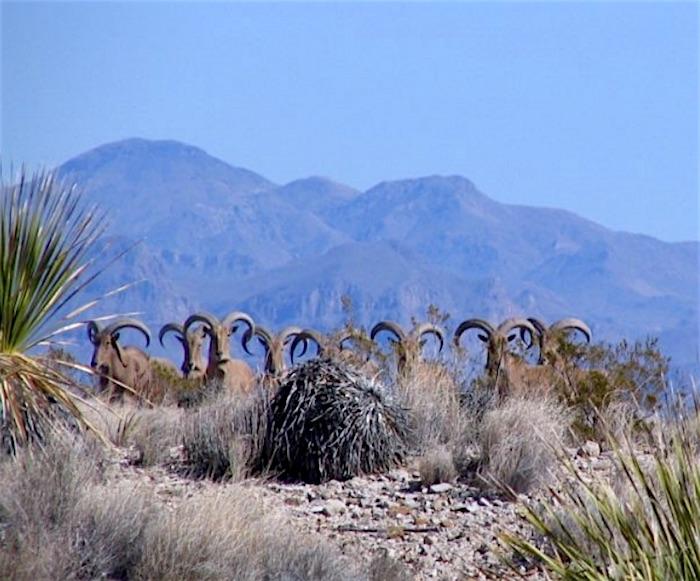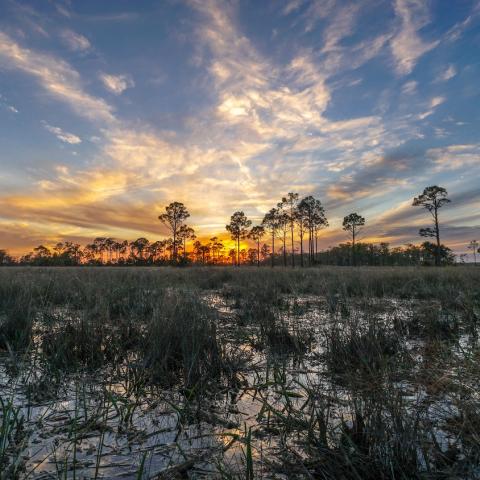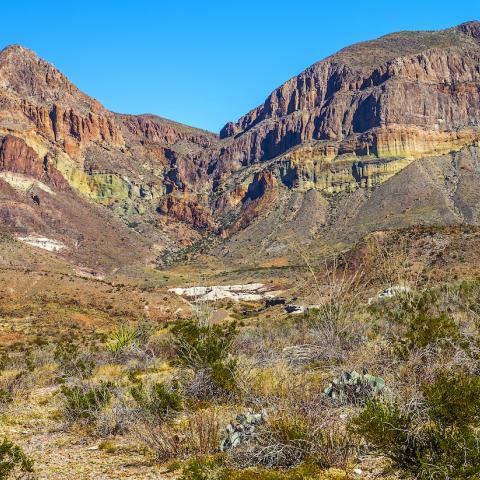
Non-native Aoudad sheep in Big Bend National Park//NPS
While they realize they won't remove all exotic wildlife from the park, Big Bend National Park staff have been given permission to move ahead with a plan to remove as many feral hogs and Aoudad sheep as possible.
Staff will use by live-trapping and lethal means to reduce the populations of the two species that have moved into Big Bend from the surrounding landscape.
Aoudad have been in the park for the past three decades, and have increased significantly in recent years. Estimates suggest 200 to 400 Aoudads now inhabit the park. Aoudads are major competitors to native desert bighorn sheep. Feral hogs are present in low numbers in the park’s northern extremity, and are expected to invade the heavily vegetated, 113-mile Rio Grande corridor in coming years. Additionally, the park wishes to prevent feral hogs from invading the Chisos Mountains, a small range within the park that contains rare montane woodlands and hosts endangered, rare and isolated native species.
According to staff estimates, upwards of 75 percent of the non-native animals can be removed from the park. This in turn means that about 157,000 pounds of vegetation will be eaten each year by the two populations, "instead of the currently estimated 628,000 pounds."
“These invasive animals threaten the native plants and animals the park is mandated to protect,” said Big Bend's acting Superintendent, Tom Forsyth. “This plan provides the framework to manage them, while minimizing the effects on park visitors. This plan will aid park management as we steward these resources for future generations.”




 Support Essential Coverage of Essential Places
Support Essential Coverage of Essential Places







Comments
Good.